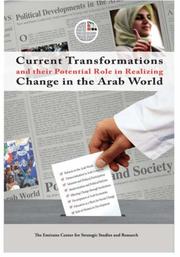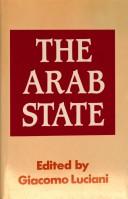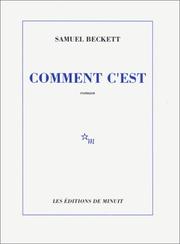| Listing 1 - 10 of 112 | << page >> |
Sort by
|

ISBN: 087609020X Year: 1986 Publisher: New York : Council on Foreign Relations,
Abstract | Keywords | Export | Availability | Bookmark
 Loading...
Loading...Choose an application
- Reference Manager
- EndNote
- RefWorks (Direct export to RefWorks)
Book
ISBN: 9780870032394 Year: 2008 Publisher: Washington : Carnegie Endowment for International Peace,
Abstract | Keywords | Export | Availability | Bookmark
 Loading...
Loading...Choose an application
- Reference Manager
- EndNote
- RefWorks (Direct export to RefWorks)

ISBN: 9789948008743 Year: 2007 Publisher: London : I. B. Tauris,
Abstract | Keywords | Export | Availability | Bookmark
 Loading...
Loading...Choose an application
- Reference Manager
- EndNote
- RefWorks (Direct export to RefWorks)
Book
ISBN: 9780190061715 Year: 2019 Publisher: Oxford, UK : Oxford University Press,
Abstract | Keywords | Export | Availability | Bookmark
 Loading...
Loading...Choose an application
- Reference Manager
- EndNote
- RefWorks (Direct export to RefWorks)
First came the disintegration of the Ottoman Empire following World War I; then, in the 1950s and '60s, the Nasser-inspired wave of Arab nationalism and socialism. The Arab world's third great political cataclysm of the past 100 years has also brought permanent changes, but not as its activists had hoped : the 2011 uprisings. Their consequences have differed greatly from area to area, splintering the Arab region into four different worlds, The Levant states have disintegrated, possibly irreversibly. The Gulf monarchies have embarked on far-reaching plans of economic and social change to stave off discontent. Egypt has retreated into military authoritarianism and a war on Islamists, threatening its future stability. Only the Maghreb countries, which have started integrating Islamists into their political systems, offer some hope for progress toward democracy. This book is an indispensable analysis of the profound upheavals that have shaken - and continue to transform - Arab and global politics.

ISBN: 0415010608 0415035139 9780415010603 9780415035132 Year: 1990 Publisher: [London]: Routledge,
Abstract | Keywords | Export | Availability | Bookmark
 Loading...
Loading...Choose an application
- Reference Manager
- EndNote
- RefWorks (Direct export to RefWorks)
Book
ISSN: 02223430 ISBN: 2209054664 9782209054664 Year: 1981 Publisher: Paris: Éd. sociales,
Abstract | Keywords | Export | Availability | Bookmark
 Loading...
Loading...Choose an application
- Reference Manager
- EndNote
- RefWorks (Direct export to RefWorks)
islam --- Islam and politics --- Islam --- Arab countries --- Politics and government --- Arab countries - Politics and government
Book
ISBN: 9780199699247 Year: 2011 Publisher: Oxford, UK : Oxford University Press,
Abstract | Keywords | Export | Availability | Bookmark
 Loading...
Loading...Choose an application
- Reference Manager
- EndNote
- RefWorks (Direct export to RefWorks)

ISBN: 2707300195 9782707300195 Year: 1961 Publisher: Paris: Éd. de Minuit,
Abstract | Keywords | Export | Availability | Bookmark
 Loading...
Loading...Choose an application
- Reference Manager
- EndNote
- RefWorks (Direct export to RefWorks)
Nationalism --- Arab countries --- Politics and government --- Nationalism - Arab countries --- Arab countries - Politics and government
Book
ISBN: 9780525434436 Year: 2017 Publisher: New York : Anchor Books,
Abstract | Keywords | Export | Availability | Bookmark
 Loading...
Loading...Choose an application
- Reference Manager
- EndNote
- RefWorks (Direct export to RefWorks)
In 2011, a series of anti-government uprisings shook the Middle East and North Africa in what would become known as the Arab Spring. Few could predict that these convulsions, initially hailed in the West as a triumph of democracy, would give way to brutal civil war, the terrors of the Islamic State, and a global refugee crisis. But, as the author shows, the seeds of catastrophe had been sown long before. In this gripping account, he examines the myriad complex causes of the region's profound unraveling, tracing the ideological conflicts of the present to their origins in the United States invasion of Iraq in 2003 and beyond. From this investigation emerges a rare view into a land in upheaval through the eyes of six individuals - the matriarch of a dissident Egyptian family; a Libyan Air Force cadet with divided loyalties; a Kurdish physician from a prominent warrior clan; a Syrian university student caught in civil war; an Iraqi activist for women's rights; and an Iraqi day laborer-turned-ISIS fighter. A probing and insightful work of reportage, this book offers a penetrating portrait of the contemporary Arab world and brings the stunning realities of an unprecedented geopolitical tragedy into crystalline focus.
ARAB SPRING, 2010 --- -ARAB COUNTRIES--POLITICS AND GOVERNMENT --- I.S. (ORGANIZATION) --- IRAQ WAR, 2003-2011
Book
ISBN: 9780367227524 9780429276712 0429276710 9781000020274 1000020274 9781000020595 1000020592 9781000020434 1000020436 Year: 2019 Publisher: Milton Park, Abingdon, Oxon ;New York, NY Routledge
Abstract | Keywords | Export | Availability | Bookmark
 Loading...
Loading...Choose an application
- Reference Manager
- EndNote
- RefWorks (Direct export to RefWorks)
This book looks at the way primarily external actors influenced and were influenced by the revolutionary chaos that erupted in the Arab Middle East in 2011. The Arab revolutions radically altered the Middle East dynamic and particularly the strategic standing of key actors, both locally and globally. The 'winners' are leaders with strategic understanding of the region and a scheme for exploiting the chaos - Putin, Netanyahu and Iran's Qasem Soleimani-along with, strikingly, the very institution of Arab monarchy. The 'losers' are the Arab autocrats who were deposed in Egypt, Libya and Yemen. The Palestinians, seemingly bypassed by the dynamic of Arab revolution, are also losers. So are the American presidents - Bush and Obama - whose disastrous strategic decision-making catalyzed Arab state fragmentation and opened the gates of the Levant to Iran's drive for regional hegemony. Western democratic society suffered too - from waves of Islamist terrorism and the effects of Muslim migration generated at least in part by Arab chaos. Only in the case of two leaders was the jury still out by 2019. Saudi Arabia's brutal reformist crown prince, Mohamed bin Salman, put Saudi women in the driver's seat but butchered and abused political rivals and neighbors alike. And US President Trump's demand to get America out of the Middle East would actually make some sense in this chaotic context if it were embedded in a cohesive strategy. This book takes a global look at a massive regional upheaval that is far from over. It is an essential read for everybody interested in the Arab revolutions, Middle East and international strategic affairs.
| Listing 1 - 10 of 112 | << page >> |
Sort by
|

 Search
Search Feedback
Feedback About UniCat
About UniCat  Help
Help News
News